#volvo
Polestar Announces Electric SUV Will Be Made in America
Volvo-owned Polestar has announced that its upcoming “performance SUV” will be manufactured within the United States, starting late in 2022. The model will be assembled alongside other Volvo products at the Swedish company’s facility in South Carolina. It also provides an opportunity for Chinese parent Zhejiang Geely Holdings to make meaningful moves on the North American marketplace and less ammunition for critics to reference the EV-focused Polestar as a foreign brand.
“Polestar 3 will be built in America, for our American customers,” said Polestar CEO Thomas Ingenlath. “I remember the great response when I first shared Polestar’s vision here in the USA and I am proud that our first SUV will be manufactured in South Carolina. From now on, the USA is no longer an export market but a home market.”
Report: Volvo Dealers Respond Negatively to Digital Retail Strategy
Last week, we discussed Volvo Cars’ plan to transition to an online sales model as a larger quotient of its product becomes electrically driven. As luck would have it, the concept hasn’t been a runaway success with auto retailers. Vehicles becoming increasingly digitized, combined with the unparalleled consumer access offered by the internet, has made numerous manufacturers wonder why the dealership role couldn’t be diminished. After all, Tesla has done alright without a traditional sales network.
But Tesla didn’t have a gross of existing showrooms ready to make a fuss. Volvo has nearly 300 and dealerships are reportedly voicing their concerns as the manufacturer does what it can to assuage fears about the possibility of their being put out of businesses in the coming years.
Volvo Cars Now Following Lynk & Co Playbook, Introduces C40 Recharge
There was a time when practically any automaker could earn a few brownie points by proclaiming that they too would be transitioning toward becoming an electric-only manufacturer by [insert year here]. But times have changed and EVs have been around long enough for consumers to expect more than a promise that there would someday be more of them. There’s also a sense that regulations (stemming largely from Europe and China) are forcing the issue to a point where practically all automakers will eventually have to totally seize electrification or be forced to hand over vast amounts of money to governments or their chief rivals as a way to “offset” carbon emissions — making corporate promises far less impressive than they otherwise could have been.
Volvo, which was at the forefront of novel combustion powertrain solutions a few years ago, has since committed itself toward wholly embracing electrification under the tutelage of Geely Automotive. The Swedish-Chinese brand has made repeated announcements suggesting just how important EVs are for its future. On Tuesday, the company announced that it had officially committed itself to going fully electric by 2030 and showcased a new model while also vowing to make future sales online only.
Geely Nixes Volvo Merger, Volvo CEO Explains
Despite having already having Volvo Cars as one of its many subsidiaries, China’s Geely signaled roughly a year ago that it wanted to merge with the brand as part of its strategy to expand globally. Plans changed on this week when the company announced that the duo will be retaining their independent corporate structures, though they will continue working on a joint development program for electric vehicles.
This means more backing for the Lynk & Co. brand, a technology-focused joint venture Geely launched with Volvo in 2016. Lynk is hoping to bridge the gap between traditional vehicle sales and subscription-based models, while also pioneering telematics and other connected services that look like an invasion of privacy to some and a technological breakthrough to others. Regardless, the industry as a whole seems convinced this represents the evolution of the automobile and a stable source of revenue for companies capable of monetizing large amounts of data — often with the help of the world’s largest technology firms.
Volvo CEO Says Governments Should Just Ban Gasoline Powered Cars
Volvo Cars’ chief executive, Håkan Samuelsson, believes a ban on gasoline-driven vehicles would be a more effective way to force groups to go electric than continuing to offer subsidies on battery-powered automobiles. The announcement comes as part of the Financial Times’ “Future of the Car Summit,” where Samuelsson will proclaim the internal combustion engine “a technology of the past.”
In related news, Volvo Cars is also in negotiations to merge with China’s Geely Automotive and has renewed its commitment toward becoming an electric-only brand by 2030. The latter issue will also be brought up during Wednesday’s Car Summit, with the CEO praising the United Kingdom’s promise to eliminate the sale of new gasoline and diesel cars that same year.
What miraculously convenient timing.
Volvo XC40 Recharge Electric Pricing Announced at $54,985
Making good on its promise that the future will be electric, Volvo has readied the XC40 Recharge P8 compact crossover for a spring debut. Though it doesn’t seem to have secured an idyllic price tag. The electrified XC40 starts at $54,985, including a $995 destination fee, which makes it around $20,000 dearer than the gasoline model. That’s a lot of dough for such a small vehicle, even after federal (and potentially state) tax incentives shave a few thousand off the top. Surely customers will be getting a top-shelf automobile on par with the Tesla Model 3 Performance, if not better, to help that MSRP make some sense. But the math just isn’t working out in Volvo’s favor based on the specs given. Model 3 destroys it in every metric that isn’t headroom because it is not a crossover.
While the XC40 Recharge comes in below its larger European counterparts on price, and often by a fairly narrow margin, its maximum range is an EPA-estimated 208 miles. That places it within striking distance of the bigger electrics manufactured by Audi or Jaguar. But Tesla will happily sell customers a Model Y boasting 326 miles of range for about $10,000 less than the XC40. The only downside is that the American brand’s sales success has already exhausted its allotted federal tax credits, meaning you’ll get more money from the government if you buy something Swedish-Chinese.
Junkyard Find: 1989 Volvo 780 Turbo Bertone Coupe
I’ve documented quite a few discarded Volvos in this series, from the PV544 through the S60, and I never fail to stop and photograph a genuine Italo-Swedish Volvo Bertone Coupe. Here’s the latest, a 1989 780 in a Denver car graveyard over the summer.
Junkyard Find: 2005 Volvo S60 With Five-speed Manual Transmission
Maybe Next Year: Volvo Pushes Back Sales Targets to 2021
Volvo Cars will be unable to reach its global volume target of 800,000 vehicles this year. Considering everything that has — or hasn’t — happened in 2020, any automaker that ends the period moving more metal than they did in 2019 should probably have a statue erected in front of their headquarters celebrating a major industrial achievement.
Volvo sold 705,452 units the last time our Earth went around the sun, forcing it to face the music when considering goals in what CEO Håkan Samuelsson calls the “corona year.”
On Again, Off Again: Volvo Aims to Get South Carolina Plant Back in Gear, but Something's Missing
Is there a U.S. assembly plant that’s not currently producing a utility vehicle that doesn’t need one? Perhaps, but that doesn’t describe Volvo Cars’ Ridgeville, South Carolina facility, which builds the new-for-2019 S60 sedan.
A still-shiny plant situated near Charleston’s busy harbor that only opened a year prior to the S60’s launch, the facility shuttered itself in late March as the coronavirus swept into North America, reopening in early May before going idle again a month later. Volvo Cars’ boss aims to get production underway again soon, but there’s a problem.
The Safety Innovation That Put Volvo on the Map Is Behind Its Largest Recall
To be fair, three-point seat belts didn’t exactly set American consumers on fire back in 1959, but the innovation eventually caught on, becoming the industry’s dominant passive restraint.
Yet even safety features can contain safety defects, which is why Volvo Cars is embarking on its largest recall to date. The (Chinese-owned) Swedish automaker has announced a global callback of 2,183,701 vehicles built over the span of 14 years.
'New Normal' Takes Hold at U.S. Auto Plants
At this point, only Ford has yet to deliver a firm restart date for its U.S. assembly plants, with Detroit rivals Fiat Chrysler and General Motors pegging May 18th for a cautious ramp-up of manufacturing activities.
Elsewhere, things are getting back to normal — or as close to normal as one is allowed these days. Amid new health protocol and a weak supply chain, Hyundai and Kia flipped on the switch this week, joining a handful of other foreign brands that have already restarted production in the U.S. South.
Rare Rides: A 1979 Volvo 242 GT, Ready for Sports Driving
Today’s Rare Ride is from a time when a few of the sensible people at the Volvo Boxy Car Company created a special, sporty version of their mainstream model. From long ago and now largely forgotten, it’s the 1979 Volvo 242 GT.
Junkyard Find: 1995 Volvo 850 Turbo Wagon
When I’m strolling through my favorite junkyards and looking for significant bits of discarded automotive history, I’m always on the lookout for interesting Volvos. Thing is, my definition of interesting has long spanned the PV544/Amazon Era through the Late Rear-Wheel-Drive Brick Era, meaning that the universe of front- and all-wheel-drive Volvos beginning with the 1993 850 has been neglected in this series.
Lately, I’ve been making an effort to fill in some of those blank spots in the junkyard record, and so I went out and found a ’97 850R sedan and today’s find: this 1995 850 Turbo Wagon.
Volvo Recalls Every Model Assembled Since the Start of 2019
Volvo is recalling every vehicle sold in the United States from the 2020 and 2019 model year. It turns out the automaker with the reputation for placing extra emphasis on safety has some bunk safety equipment. During tests late last year, the Federation of Danish Motorists noticed the automatic emergency braking (AEB) system in a Volvo XC60 consistently failed to operate as intended — smacking itself into numerous test dummies and automobiles.
After an internal investigation, Volvo Cars issued a global recall encompassing roughly 736,000 units on March 13th. Since the manufacturer has made the feature standard equipment on all vehicles, every single model produced by the automaker since January 21st, 2019 needs to be recalled.



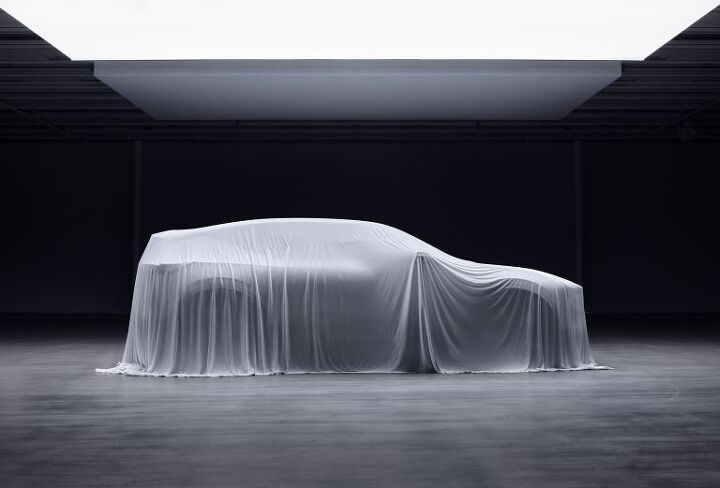
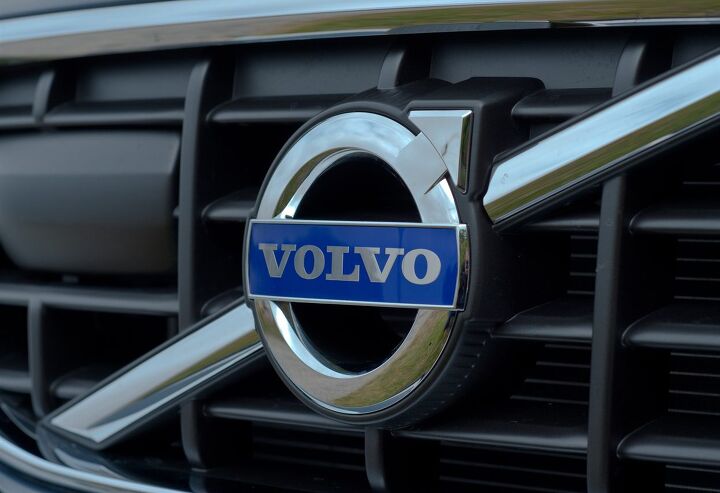

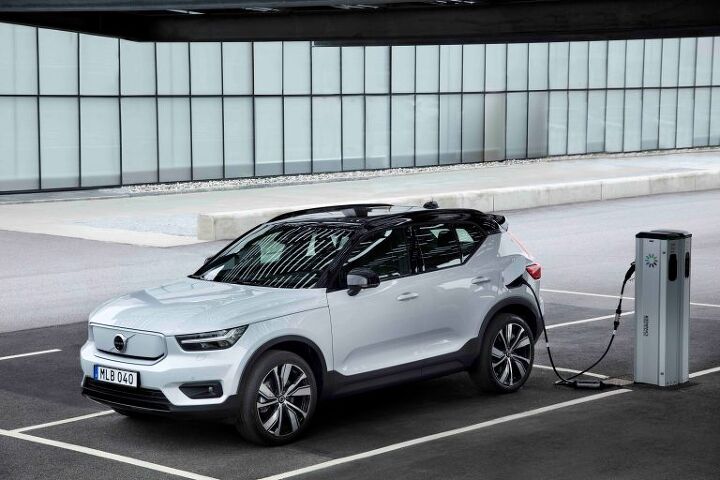
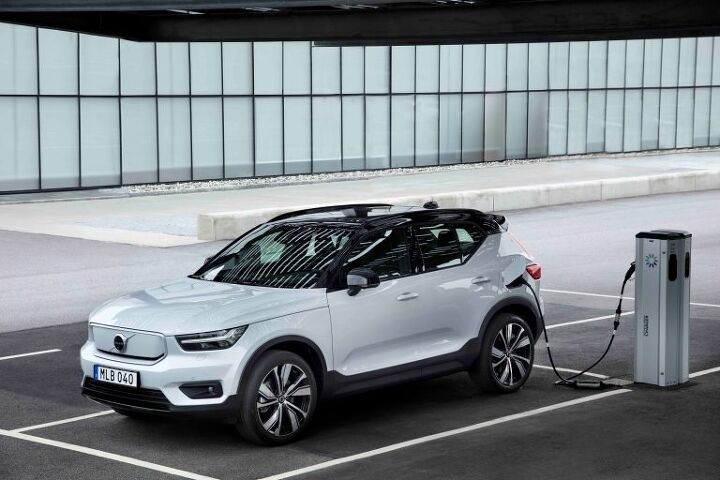





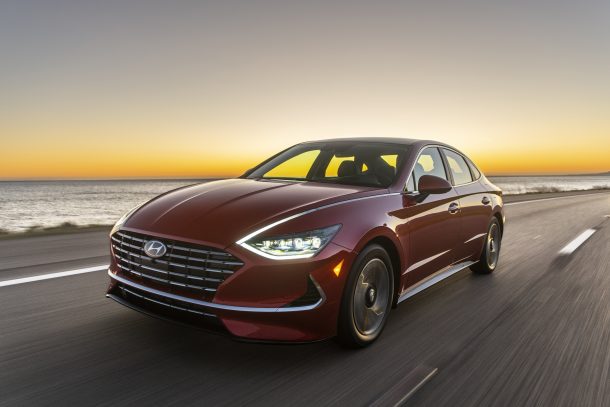
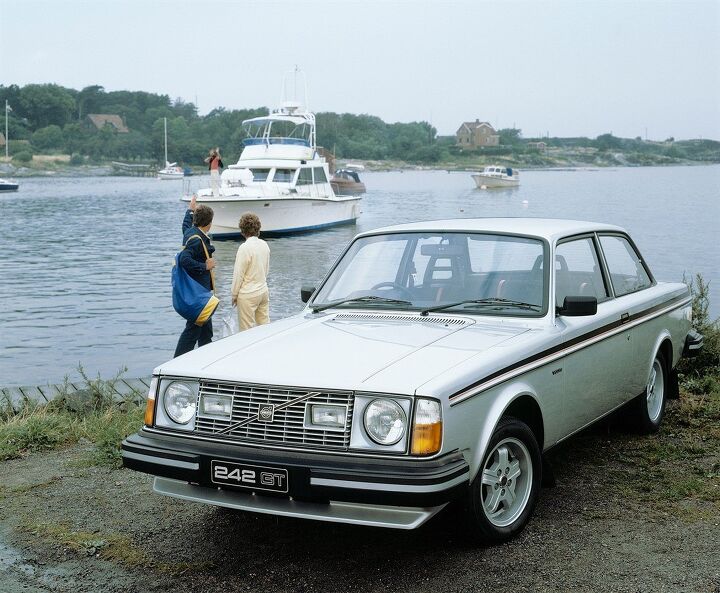














Recent Comments